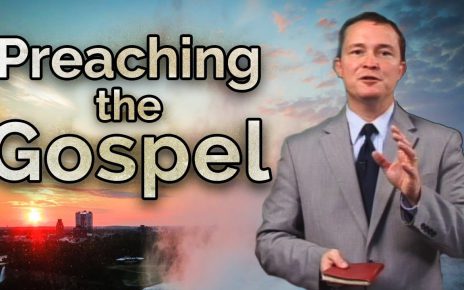Apostasy from the Holiness of the Gospel – Puritan John Owen / Christian Audio Books
“The Spirit speaketh expressly, that in the latter times some shall depart from the faith, giving heed to seducing spirits and doctrines of devils.” (1 Timothy 4:1)
Text of narration can be found here:
Unacquaintedness with the true nature of evangelical repentance is another cause why saints lack in gospel holiness. This is that grace which comfortably carrieth the souls of believers through all their failings, infirmities, and sins; nor are they able to live to God one day without the constant exercise of it. They find it as necessary unto the continuance of spiritual life as faith itself. It is not only a means of our entrance into, but it belongs essentially unto, our gospel state and our continuance therein. Hereunto belongs that continual humble self-abasement, from a sense of the majesty and holiness of God, with the disproportion of the best of our duties unto his will, which believers live and walk in continually; and he that is not sensible of a gracious sweetness and usefulness therein knows not what it is to walk with God. Hereby doth God administer several encouragements unto our souls to abide in our way of obedience, notwithstanding the many discouragements and despondencies we meet withal. In brief, take it away, and you overthrow faith, and hope, and all other graces. Those, therefore, who are unacquainted with the nature and use of this grace and duty, who can taste no spiritual refreshment in all its sorrows, who know nothing of it but legal troubles, anguish, fear, and distraction, will not endure the thought of living in the practice of it all their days; which yet is as necessary unto gospel holiness as faith itself. Men, I say, falling into this condition, finding all these difficulties to conflict withal, and lying under these disadvantages, if any thing will offer itself in the room of this costly holiness, will readily embrace it.
SUBSCRIBE:
SUPPORT MINISTRY:
John Owen playlist:
John Owen – (1616-1683), Congregational theologian
Born at Stadhampton, Oxfordshire, Owen was educated at Queen’s College, Oxford, where he studied classics and theology and was ordained. Because of the “high-church” innovations introduced by Archbishop William Laud, he left the university to be a chaplain to the family of a noble lord. His first parish was at Fordham in Essex, to which he went while the nation was involved in civil war. Here he became convinced that the Congregational way was the scriptural form of church government. In his next charge, the parish of Coggeshall. in Essex, he acted both as the pastor of a gathered church and as the minister of the parish. This was possible because the parliament, at war with the king, had removed bishops. In practice, this meant that the parishes could go their own way in worship and organization.
Oliver Cromwell liked Owen and took him as his chaplain on his expeditions both to Ireland and Scotland (1649-1651). Owen’s fame was at its height from 1651 to 1660 when he played a prominent part in the religious, political, and academic life of the nation. Appointed dean of Christ Church, Oxford, in 1651, he became also vice-chancellor of the university in 1652, a post he held for five years with great distinction and with a marked impartiality not often found in Puritan divines. This led him also to disagreement, even with Cromwell, over the latter’s assumption of the protectorship. Owen retained his deanery until 1659. Shortly after the Restoration of the monarchy in 1660, he moved to London, where he was active in preaching and writing until his death. He declined invitations to the ministry in Boston (1663) and the presidency of Harvard (1670) and chided New England Congregationalists for intolerance. He turned aside also from high preferment when his influence was acknowledged by governmental attempts to persuade him to relinquish Nonconformity in favor of the established church.
His numerous works include The Display of Arminianism (1642); Eshcol, or Rules of Direction for the Walking of the Saints in Fellowship (1648), an exposition of Congregational principles; Saius Electorum, Sanguis Jesu (1648), another anti-Arminian polemic; Diatriba de Divina Justitia (1658), an attack on Socinianism; Of the Divine Original Authority of the Scriptures (1659); Theologoumena Pantodapa (1661), a history from creation to Reformation; Animadversions to Fiat Lux (1662).
-~-~~-~~~-~~-~-
Please watch: “What Do You Want? – Oswald Chambers / Christian Devotional / My Utmost for His Highest”
-~-~~-~~~-~~-~-
source




